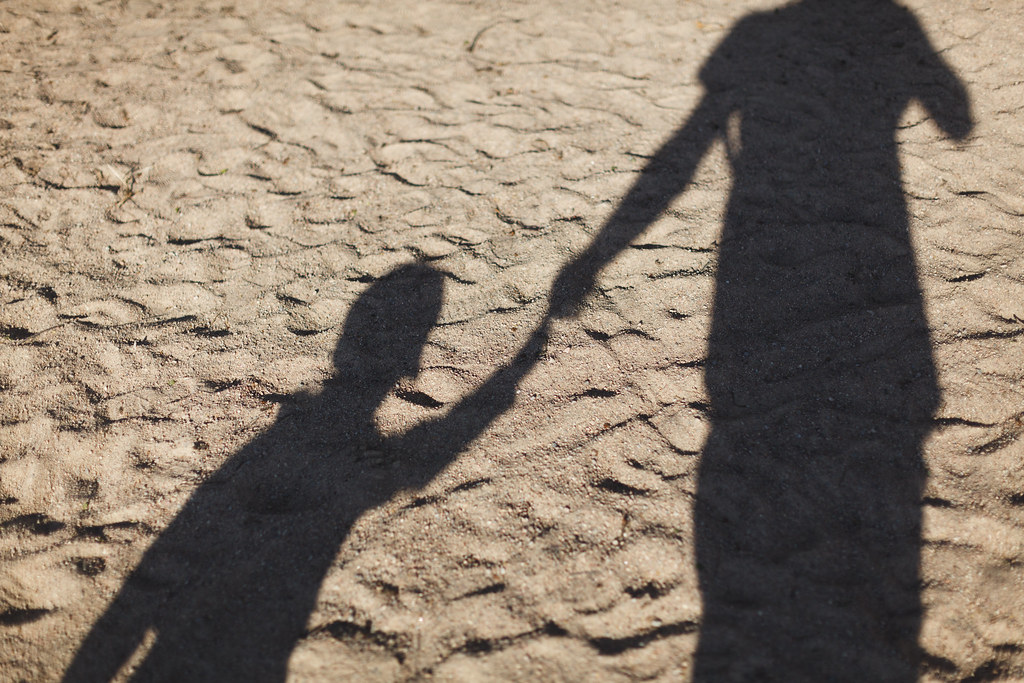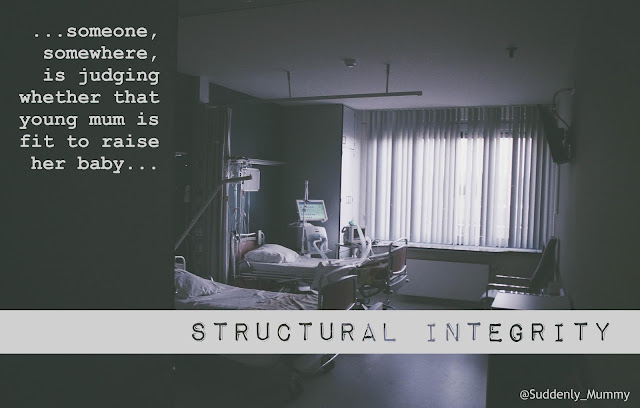I Still Believe in Adoption
I cannot go into all the differing viewpoints that I have been confronted with (sometimes quite literally) in the scope of a single blog post - it would probably take a book! - but despite everything I have heard, read and seen, despite the hurt and the loss and the struggles, I want to say that I still believe in adoption.
Let me be clear. I am not saying that I think it's acceptable that birth mums are coerced or strongly encouraged to give up their babies for adoption simply because of poverty, or because they are unsupported, or because they are poorly educated. I am uncomfortable with adoption as a business enterprise where money changes hands and agencies profit hugely. I am uncomfortable with international adoptions if it can't be verified beyond all reasonable doubt that the child in question could absolutely not be cared for by a family member. These situations need to be handled with care, and are not areas in which I have much experience or knowledge.
What I am talking about is what I am familiar with - situations where a child needs a new 'permanence plan' because for one reason or another it has been decided that they can no longer live with their birth parents or anybody in their birth family. Let's face it, this is the situation with most adoptions in the UK. In these circumstances I am wholeheartedly behind looking at adoption as the potential first and best option, whether open or otherwise.
I know, of course, that there are circumstances when adoption simply isn't an option. I blogged about some of them here, although I would add that the possibility of an open adoption might counteract some of those circumstances. But where a long-term permanency plan is being considered for a child and living with a close family member is not possible, my personal view is that adoption is a stand-out option. And I think this for one reason only:
Belonging.
I'm not talking about the child belonging to the adoptive parent. What child really 'belongs' to its parents anyway? No, I'm talking about the adoptive parent 'belonging' to the child.
When I adopted OB, I made a public statement about my intentions towards him. A legal statement even. I willingly entered into a new status where I would belong to OB for all of my life, regardless of what was to come. As I took on a new status in his life - that of 'parent' - he became an heir to all that this entails, with certain privileges, rights and expectations granted without any expectation of anything in return.
As his parent, OB can expect that I will love him unconditionally, prioritise him, put his needs before my own, fight for him, advocate for him, stick with him, nurture him, and much more. He has an absolute right to expect all of this because I am 'his person'. And if I let him down, then he will have every right to feel let down, to seek redress, to ask for better, to seek and receive comfort from others. It's a one-sided covenant that I cannot break. Even if one day OB chose to disown me, to cease to acknowledge me as his parent, it wouldn't change the commitment I have made.
Of course, a guardian or foster carer can love, nurture and advocate for children too. I live on that side of the fence myself, and I know how fiercely I fight for and protect and love the children who come to live in our family. But I don't think my status as a carer is the same as my status as a parent in the eyes of a child. I once heard someone say that children in care feel acutely aware that everyone who cares for them is paid to do so. It smarted, and it made me angry to hear that because I know my caring isn't motivated by money. But at the same time, without the money I wouldn't be able to foster. You can see why a child might feel that way.
I think that having somebody who you know belongs to you is incredibly important. I know that adoptions go wrong, as do biological parent-child relationships. I know that there will be research of all kinds on the relative merits of different kinds of permanence, and I have no research to support my view, except for what I know from my own life. But I will stick my neck out and say that, as a child matures to an adult, the security - the deep down, almost subconscious knowledge - of having 'their person' or people will make more difference than anything else I can think of. My time spent among Romania's 'orphaned' teens, and even with some of the mums of the children I have fostered have shown me the devastating impact of a life lived without that security. It is not one I would wish for any child.
OB has several people who belong to him. I do, of course, and our extended family. And also his birth mum and his birth family, even though things went so badly wrong. As he grows up, he will have to face what it means to have been let down by people who were supposed to belong to him. I hope that he will be able to count on the other people who belong to him to help him navigate all of that.
But he does not belong to his birth mum. And he does not belong to me. That's not how it works. If there are people out there who think I will never really be OB's mother, then that's fine. Call me what you like. But I will continue to belong to OB for as long as I live. He can count on that.







Here here, totallg agree!
ReplyDeleteWell written, very true I'm with you. Until we come up with an alternative adoption is the way forward.
ReplyDeleteThe sense of belonging, mutual and one way, feels like one of the key components that makes adoption rather special. It's all a bit unquantifiable but palpably tangible at the same time.
ReplyDeleteI'm sure it wold make someone a good phd thesis.
I totally agree, as I'm sure many other do too.
ReplyDeleteThanks for linking up to #WASO, and for always taking time to support other bloggers too x
Thanks for writing this.
ReplyDeleteThe last comment was a test. I often write long replies on blogs only to lose them. D'oh.
ReplyDeleteI'm on a journey with making sense of some aspects of my girls' story and what would and wouldn't have been best for them. I also work with families very like theirs and this most definitely shapes my feelings as much as anything. I've sat in LAC reviews where the decision for adoption is made. Without question, almost every child I work with would be, in a lot of ways, better off elsewhere. Some are removed and some aren't. Some do okay and some don't. It's a messy business and I'm glad I don't have to decide.
But now these girls are mine and I know I wouldn't love them any more or less if I'd given birth to them myself. We belong together.
The topic of adoption brings out strong views in people but I agree that there isn't a better solution.
ReplyDeleteInternational adoption brings out even stronger views! I have a child adopted from China. I felt when we left China with her that what I was doing was both an act of love and an act of almost violence, plucking her out of her homeland, culture and language. But, at that time, there were no other options for her. I am happy that now there seems to be a system operating which allows most babies in China to be adopted within China and very few babies are available for international adoption. Way, way better.
This is a thorny topic and one I hadn't really had much exposure to before. I totally get the dynamics where international adoption could be said to encourage abandonment of children in parts of the world where crushing poverty and cultural mores make this an option. On the other hand, once a child is in an institution, is there any real chance of their local authorities making an effort to find kin that they could go to? I was in and out of so-called orphanages in Romania over many years and I only ever met one child who was truly an orphan - in fact by the mid 2000s, around 40% of children in Romanian orphanages had been removed from family for child protection reasons. There was virtually no system of foster care and adoptions didn't seem so common either. Given the choice of international adoption as compared to being raised in one of these institutions, adoption surely seems better to my eyes anyway. But what was needed was a cultural shift within the country which does seem to have happened to some extent.
ReplyDeleteWhat a terrific essay. Thank you!
ReplyDelete